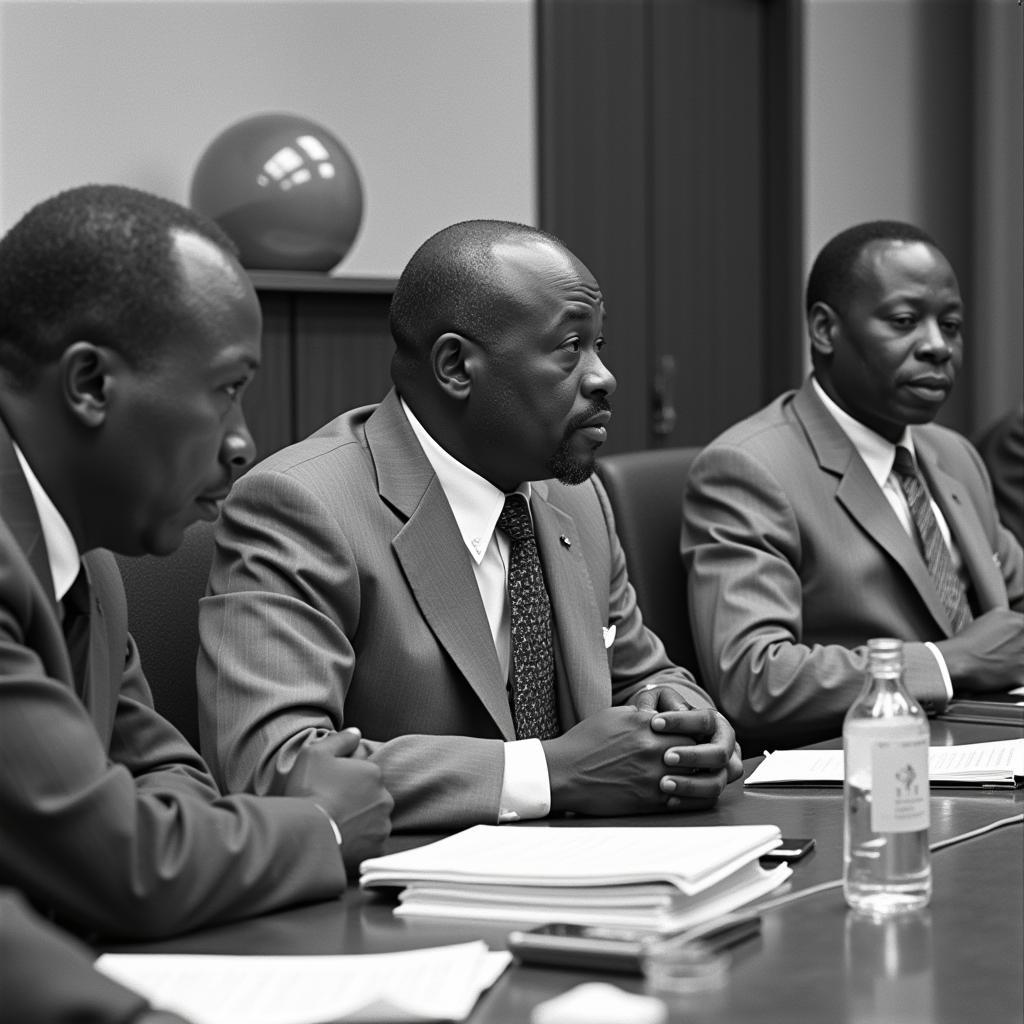African Gandhi: Exploring the Legacy of Kwame Nkrumah
The term “African Gandhi,” often associated with Kwame Nkrumah, sparks intrigue and raises questions about the parallels between these two iconic figures. While Mahatma Gandhi led India to independence through non-violent resistance, Nkrumah championed a similar spirit of liberation in Ghana, earning him the moniker that echoes across continents. This article delves into the life, ideology, and legacy of Kwame Nkrumah, the “African Gandhi,” and his impact on Ghana and the Pan-African movement.
Early Life and Education: The Making of a Visionary
Born in 1909 in Nkroful, Ghana (then Gold Coast), Nkrumah’s early life was marked by a thirst for knowledge. After completing his education at Achimota School and teaching at Roman Catholic schools, he embarked on a transformative journey to the United States for higher education.
 Kwame Nkrumah studying
Kwame Nkrumah studying
At Lincoln University, he delved into economics, sociology, and theology, graduating with a Bachelor of Arts in 1939. His time at the University of Pennsylvania further honed his intellectual prowess, earning him a Master of Arts in Philosophy and a Master of Science in Education. During this period, Nkrumah immersed himself in the works of thinkers like Marcus Garvey and W.E.B. Du Bois, igniting within him a fervent passion for Pan-Africanism and the liberation of Africa from colonial rule.
The Fight for Independence: From Organizer to Prime Minister
In 1947, Nkrumah returned to the Gold Coast, armed with a vision for a free and independent Ghana. He joined the United Gold Coast Convention (UGCC) as its general secretary, mobilizing the masses and organizing protests against colonial rule. However, his radical approach advocating for “self-government now” led to a split from the UGCC, and he formed the Convention People’s Party (CPP) in 1949.
Nkrumah’s charisma and powerful message resonated with the people. The CPP’s slogan “Independence Now” became a rallying cry, and despite facing imprisonment by the British authorities, his influence only grew. In 1951, while still imprisoned, Nkrumah led the CPP to a resounding victory in the Gold Coast’s first general election, paving the way for his release and appointment as Leader of Government Business. Finally, on March 6, 1957, Ghana, formerly the Gold Coast, achieved independence with Kwame Nkrumah as its first Prime Minister, a testament to his unwavering commitment and leadership.
Leading a New Nation: Development and Pan-Africanism
As Prime Minister and later President, Nkrumah embarked on an ambitious development agenda for Ghana. He prioritized education, healthcare, and industrialization, investing heavily in infrastructure projects like the Akosombo Dam. However, his socialist-leaning policies and increasing authoritarianism drew criticism.
 Kwame Nkrumah at a Pan-African Conference
Kwame Nkrumah at a Pan-African Conference
On the international stage, Nkrumah emerged as a leading voice for Pan-Africanism. He believed in a united Africa, free from colonial rule and exploitation, and actively supported liberation movements across the continent. He co-founded the Organization of African Unity (OAU), now the African Union (AU), in 1963, laying the groundwork for greater cooperation and unity among African nations.
Legacy and Critique: The Complexities of “African Gandhi”
Kwame Nkrumah’s legacy remains complex and multifaceted. He is revered as the father of Ghana, a visionary leader who spearheaded the country’s independence and championed Pan-Africanism. His contributions to education, healthcare, and infrastructure development continue to benefit Ghana today.
However, Nkrumah’s authoritarian tendencies, suppression of dissent, and economic challenges during his rule have also been subject to criticism. The label “African Gandhi,” while highlighting his role as a liberator, doesn’t fully encapsulate the complexities of his leadership.
Despite the controversies, Kwame Nkrumah remains a pivotal figure in African history. His unwavering belief in a united and independent Africa continues to inspire generations of leaders and activists. The “African Gandhi,” a title bestowed upon him, serves as a reminder of his significant contributions to the liberation of Ghana and the broader Pan-African movement.

